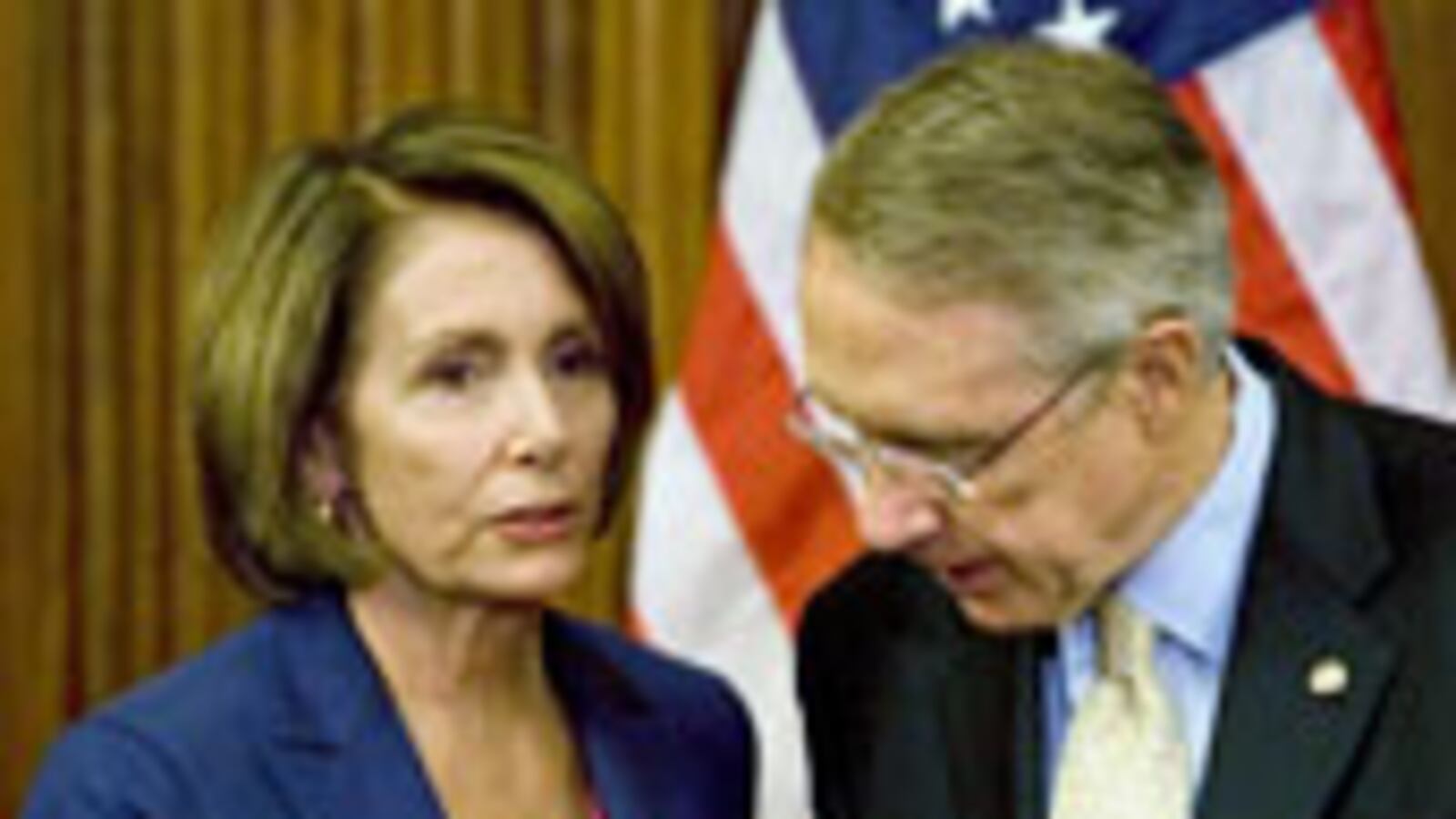
In recent weeks, I’ve been critical of some of the most hard-core ideological elements of the GOP. As a consequence, some have requested I leave the party altogether, and say that I am now an unwelcome member. Let me be clear: No one wants the Republican Party to succeed more than I do. I spent nearly two years on the road during my father’s presidential campaign, in my early twenties, surrounded by hygienically deficient, middle-aged political strategists traveling on a bus whose bathroom was almost always clogged. I did everything I could possibly think of to help get my father elected president. During that time, I admittedly realized conservatives’ failure to communicate effectively with my generation. But I also completely fell in love with the party, and started to understand why its core ideals better defined me than those of the Democrats. Any criticism I give of the Republican Party is out of love, and as someone who feels knowledgeable and experienced enough to give constructive criticism.
But as harsh as I’ve been about some elements of the GOP, I find aspects of the Democratic Party infinitely worse. Just as I fear the far right would undermine a conservative resurgence, the far left of Obama’s party threatens to do the exact same thing to him and his administration.
It is no secret that the Republican Party, for all its faults, consistently displays party unity. But Democratic leaders seem more concerned with their own personal agendas than supporting President Obama and the future of their party.
It is no secret that the Republican Party, for all its faults, consistently displays party unity. For all the criticism that the Bush administration came in for, risks were taken (like supporting the Iraq troop surge) that wound up benefiting the GOP in the long run. But Democratic leaders such as Nancy Pelosi and Harry Reid seem more concerned with their own personal agendas than supporting President Obama and the future of their party. In fact, shortly after Barack Obama was elected president, Senator Reid went so far as to say, “I don’t work for him.” Even after the Democrats’ huge victories in 2006 and 2008, party unity still seems to be in disarray.
Take Afghanistan, for example. Republican leaders, including my father and Bill Kristol, support Obama’s new plan—and moreover, have expressed concern that the liberal House and Senate leadership are so stuck on being antiwar and standing up for leftist values that they are failing to properly inform voters of the issues at hand. Worse, congressional Democrats are threatening Obama’s ability to do his job as president appropriately, and protect the American people. It is all the more ironic that Republicans are supporting Obama and his bipartisan approach while his own party remains wary and doubtful.
I always have believed that in order for our government to successfully function and move forward, it is important for both parties to embrace centrism. Of course, many people voted for Barack Obama because they were hoping he would be an extremely liberal president. Personally, I think he and his advisers are smart enough to understand there’s much to be done in the political center by listening to both sides and learning to compromise. But Obama will not be able to continue this course if his party leaders don’t support him. Just last month, John Avlon made this very point on The Daily Beast in his article, “The Coming Democratic Civil War”: Liberal Democrats threaten to undo Obama’s presidency because of their embrace of partisanship.
Look at Obama’s stimulus bill—as soon as he handed it over to the House, Democrats loaded it with so many appropriations they made it impossible to pass. In his article “Why the Democrats Can’t Govern” in this week's New Republic, Jonathan Chait writes that “the stimulus served as a mere precursor to the major battle over Obama's budget.” (He goes on to cite Sen. Kent Conrad’s endorsement of farm payments and Democrats' opposition to Obama’s plan to limit tax deductions for the rich.) Now, I may not agree with Obama either, but if such a left-leaning magazine so blatantly recognizes the writing on the wall when it comes to extreme members of the Democratic Party hijacking message and power, then it is obviously a major concern.
This is less about Harry Reid and Nancy Pelosi than about party infighting. If Republicans are going to gain power again, and more importantly, remain in power, we must recognize the value of centrism—instead of turning to extreme right-wing members of the party like Rush Limbaugh (which I have made clear I think is a dangerous thing for the party to do). That the Democrats find themselves with the same problem while they’re in power only highlights my point. We must get the right people in power to win the next election cycle, and the one after that. If the Democrats don’t figure it out, they will inevitably find themselves in the minority again. The question remains: Can politics ever become truly centrist and bipartisan?
Meghan McCain is originally from Phoenix. She graduated from Columbia University in 2007. She previously wrote for Newsweek magazine and created the Web site mccainblogette.com.






